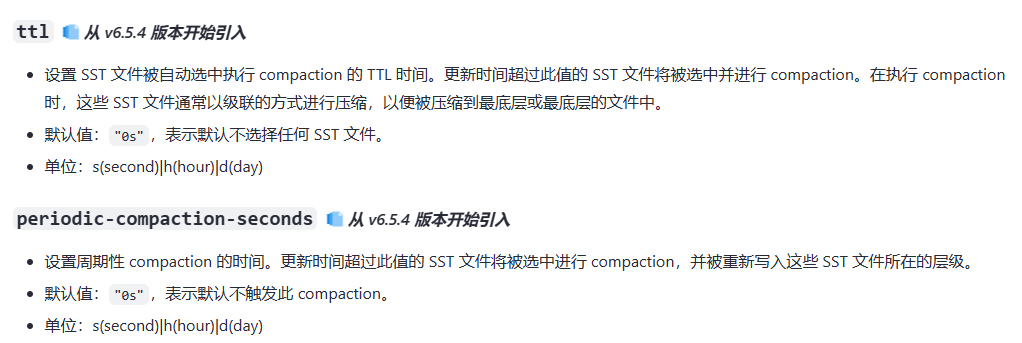Note:
This topic has been translated from a Chinese forum by GPT and might contain errors.Original topic: tikv参数periodic-compaction-seconds和ttl
【TiDB Usage Environment】Production Environment / Testing / Poc
【TiDB Version】
【Reproduction Path】What operations were performed when the problem occurred
【Encountered Problem: Problem Phenomenon and Impact】
【Resource Configuration】Go to TiDB Dashboard - Cluster Info - Hosts and take a screenshot of this page
【Attachments: Screenshots/Logs/Monitoring】
After upgrading from 6.5.3 to 6.5.4, two new parameters were added. Do they need to be adjusted?
Compatibility changes in 6.5.4:
- Periodic compaction of RocksDB is disabled by default, making the default behavior of TiKV RocksDB consistent with versions prior to v6.5.0, avoiding a large amount of compaction after the upgrade that could affect system performance. Additionally, TiKV introduces the
rocksdb.[defaultcf|writecf|lockcf].periodic-compaction-secondsandrocksdb.[defaultcf|writecf|lockcf].ttlconfiguration options, supporting manual configuration of RocksDB’s periodic compaction #15355 @LykxSassinator
